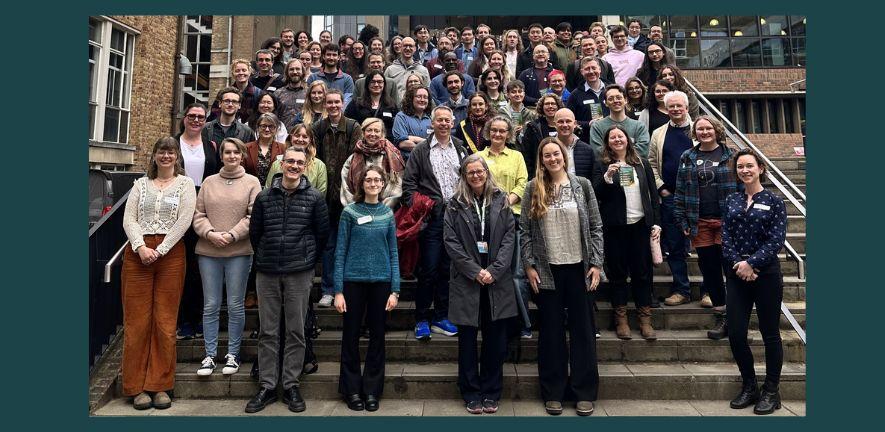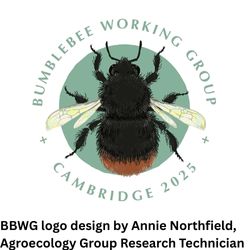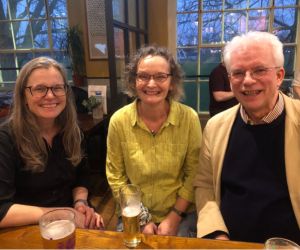
Submitted by Abigail Youngman on Wed, 26/03/2025 - 19:06
Congratulations to PhD students, Sofia Dartnell, Nynke Blömer and Jacqui James, who, along with Dr Sarah Scott, and Professor Lynn Dicks were hosts of the 2025 Bumblebee Working Group (BBWG) meeting, held here in the Department of Zoology earlier this week.
This biannual meeting brings British bumblebee researchers together to discuss their work and updates in the world of bumblebees.
It was a fantastic day of bumblebee discussions, featuring talks from a wide range of researchers – including Dr Richard Comont, head of research at the Bumblebee Conservation Trust, Dr Paul Williams, a bumblebee expert from London's Natural History Museum, and Dr Duncan Coston from ADAS, an agricultural/environmental consultancy – as well as professors and postgraduate students from across the UK. (Pictured are (L to R): Prof Lynn Dicks, Prof Juliet Osborne, University of Exeter and Dr Paul Williams, who were all supervised by Dr Sally Corbet as Zoology PhD students in Cambridge.)
Sofia Dartnell, the meeting’s lead organizer and a Gates Cambridge Scholar, was thrilled to have the opportunity to bring such a diversity of researchers to Cambridge: “It is rare to find yourself in a room of more than 80 people studying bumblebees – it was an incredible opportunity to meet the people whose research you’ve followed so closely and build collaborations across the UK.”
This year's meeting had a particular focus on Early Career Researchers and skills-sharing, featuring the meeting’s first poster session and a bumblebee dissection workshop by Mark Brown, Professor in Evolutionary Ecology and Conservation, Royal Holloway University of London (pictured below). It can be difficult to learn the dissection process without seeing it happen. However, thanks to the high-tech microscope setup in our Teaching Laboratory, the BBWG team was able to broadcast video from the microscope onto screens around the room for all to follow along, even BBWG participants joining online via Zoom.
The meeting comes at a pertinent time, with Bumblebee Conservation Trust reporting 2024 as the worst year for bumblebees on record. As bumblebees emerge from their winter hibernation, the BBWG team is ready to continue their work understanding these important pollinators and the ways we can help their conservation in the face of changing climates and landscapes.
Pictures by Sofia Dartnell.



